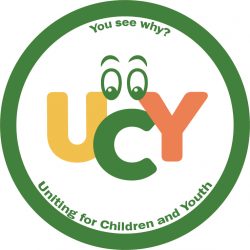Question 3 – Zone 12 Response
Contents
The Question in brief
Response from:
– Rawlson King
The Question in Brief
This question comes from Charlotte Dwyer and Ny Holmes, two Grade 11 Ottawa secondary school students who recently organized Nepean High School’s successful walkout against Ford’s changes to the curriculum.
Their Question
What steps are you going to take to ensure that students feel they are heard in regards to their involvement in THEIR curriculum?
Rawlson King
I believe in the inclusion and empowerment of students in decision-making processes in our schools. I am committed to the belief that we need to provide students with more sufficient opportunities to provide input to teachers and the school administration concerning new initiatives and selected areas for improvement, especially concerning curricula.
Students recently walked out of class to protest the roll back of the updated sex-ed curriculum and the exclusion of an Indigenous curriculum because they felt that they did not have a sufficient say or a voice in the process. I believe we need to respect the opinion of students, and listen to the “student voice”.
Student voice has been defined as “any expression of any learner regarding anything related to education” and describes the distinct perspectives and actions of young people throughout schools focused on education. I believe we need a more formalized process to listen to the student voice and actually incorporate student opinions into policy concerning how our schools operate.
Consequently, the School Board needs additional mechanisms that allow students to meaningfully share their ideas with the Board of Trustees, in order to strengthen student participation and engagement, that goes beyond the limited input of Student Trustees.
We should engage with students directly, on an on going basis, to ask for student opinions, by way of providing more resources to the the Student Senate to engage in wider student fact finding throughout the district. More detailed reports directly from the Student Senate should be generated and relayed to the Board of Trustees, and more deputations by students in front of the Board of Trustees should be encouraged, to share student opinions and viewpoints.
In terms of curricula, School Board staff should explore the possibility of piloting more democratic forms of learning in the classroom, where students are involved in the decision-making process that affects how and what they learn. Democratic learning models often have meetings open to all stakeholders, where everyone present can have a voice and can provide meaningful input concerning the learning in the classroom. Working together as partners under such a model, students, teachers, parents and school administrators can all participate in decisions affecting curricula and the learning environment. By opening up dialogue, I believe we can respect the opinion of students and provide a platform for their meaningful participation in their education.

